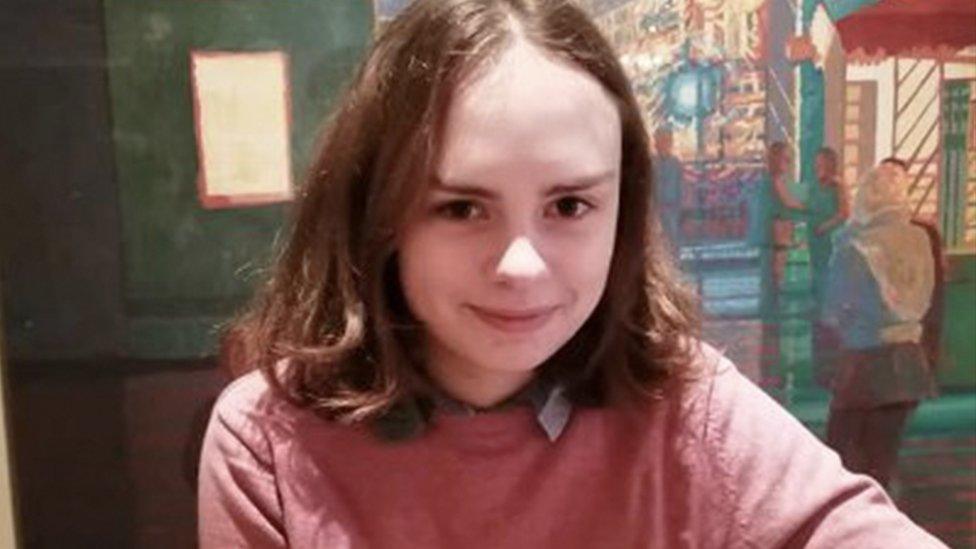'I worked on the vaccine my dad was given'
- Published
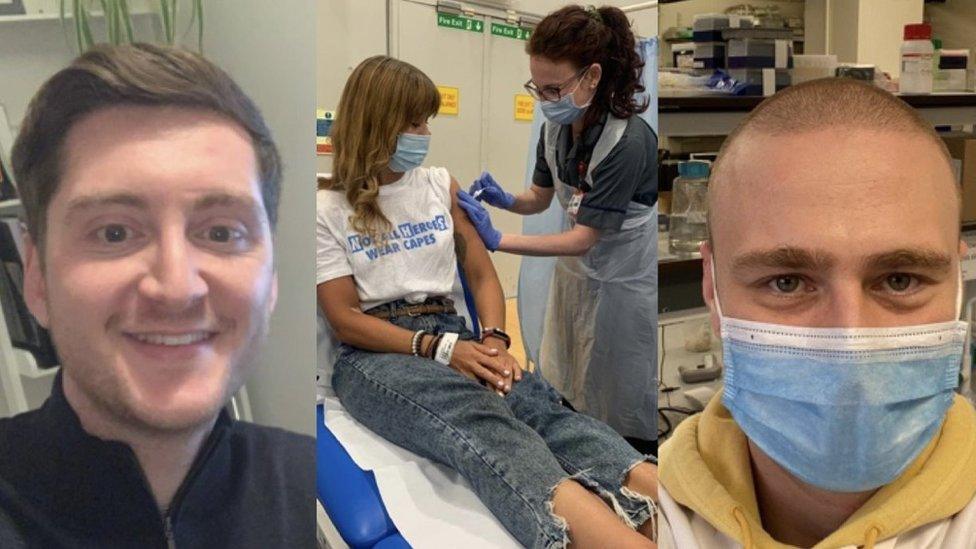
For many, it's the glimmer of hope getting them through lockdown. But for others, it's been the highlight of their career.
We're talking about the vaccines created to protect against coronavirus.
Almost nine million people in the UK have now received their first dose, but way before a vaccine can be approved, it needs to go through trials where volunteers are given the injection.
Luke Cunliffe is a clinical scientist at Pfizer, and worked on their Covid 19 vaccination programme. It's his job to look over the data generated on vaccine trials.
He remembers the day the vaccine was given approval to be used in the UK very clearly.
"I woke up to the BBC News notification on my phone - turned on the television and it was being discussed everywhere," the 26-year-old tells Radio 1 Newsbeat.
"I received so many WhatsApp messages from friends congratulating me and asking when they would get the vaccine, it was incredible".
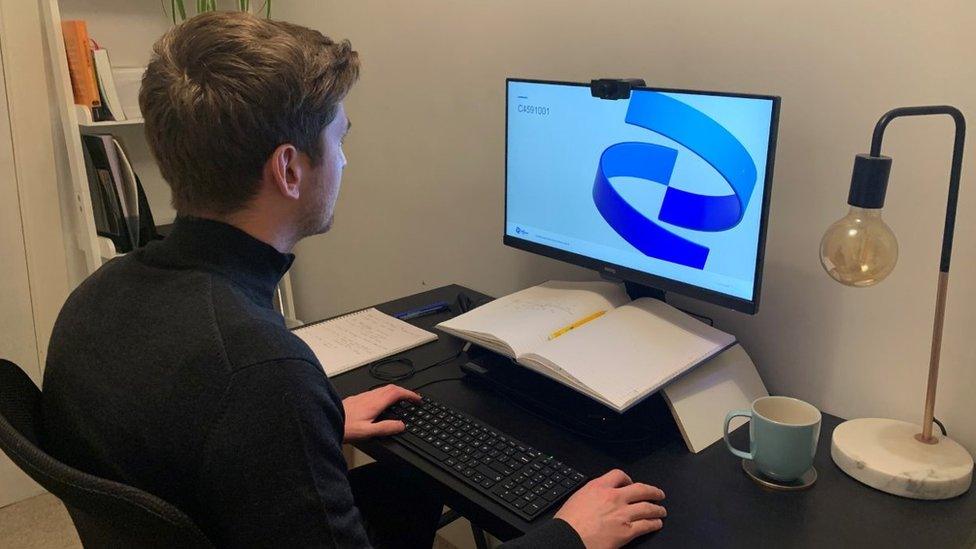
Luke joined Pfizer as an undergraduate
You might assume Luke would be based in a lab, but he's done all his work from home - sitting at the same desk he studied at for his GCSEs and A-Levels.
He says it feels "crazy" to have carried out world-leading science from his parents' landing.
"I had a real goosebump moment a few weeks ago when I got a picture message from my Dad, who works for the NHS. It was a photo of him receiving the vaccine.
"It really isn't every day you see something you've worked on so closely, protecting those that mean the most to you".
Luke says his days have been stressful and at one point he was regularly working between 8am-10pm.
"Everyone involved in the vaccine programme is aware of what's at stake and that brings pressures, but it's all been made worthwhile by seeing how everyone is now receiving the vaccine and how we've bought hope to people across the world".
Despite the stress, Luke says he found coping mechanisms to keep him going.
"You just need to watch the news and see how many people are impacted to be spurred on.
"I also got a coffee machine for Christmas and it's not really been switched off so that's helped a lot!"
'We're in Vogue again'
Rhys Brown is a PhD student who was redeployed during the pandemic to help process volunteer samples for the Oxford Covid-19 vaccine.
The micro-biology student says he was effectively the middleman between the nurses who collected samples and Oxford University scientists who analysed them.
"It's crazy to me that I'm 27, just starting out in my career, and I've worked on one of the most famous vaccines in history.
"Although I only played a small part, it's the proudest moment I've had in my life".
The work Rhys carried out allowed Oxford scientists to look for antibodies "which can show that person has protection against the virus".
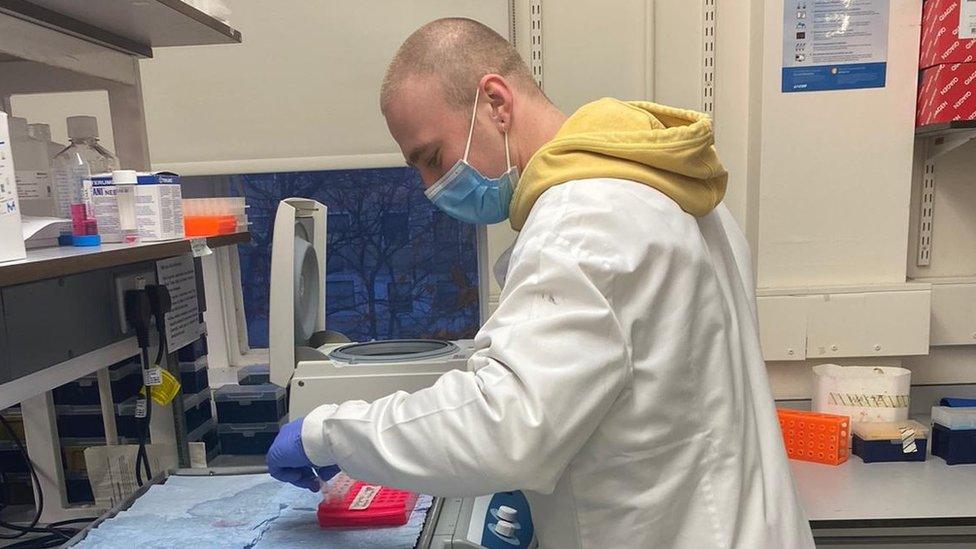
"I feel lucky I've been able to work during lockdown"
He says some of his friends now think he's a hero.
"I put it on my Instagram and it's the most popular post I've had. One of my friends called me a hero and I'm not great at taking praise, so I do feel a bit like an imposter".
Rhys, who normally works as a laboratory assistant at Kings College, says the vaccine has made people think differently about scientists.
"You can certainly say we're in vogue at the moment, I guess you could say scientists are now somewhat fashionable."
'It wouldn't have happened without you'
Georgia Pullen is one of more than 11,000 people who volunteered to take part in the Oxford University Covid-19 trial. The 27-year-old from Southampton said seeing the vaccine get approval was a happy moment.
"I was pretty chuffed. It made it feel like going through the process was worth something."
"My nan is getting the vaccine this week and she text me to say 'thanks for all your hard work - it wouldn't have happened without people like you', so that made me really proud".
Even though the vaccine has been rolled out across the UK, the trial Georgia is on is still ongoing.
"I'm still doing weekly tests and blood check-ups, just to make sure it's safe in the long-run".
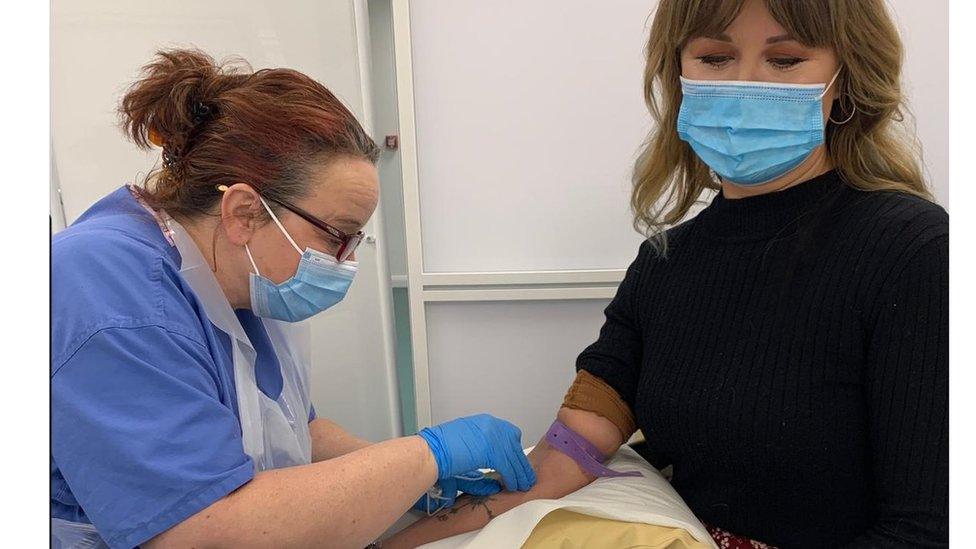
Georgia getting a check-up in 2020
Georgia, who's a graphic designer, said she's experienced no side effects. She joked, "I'd hoped I'd grow another toe, but there's been nothing".
Although she does have one minor complaint about the process.
"I didn't even get a sticker or a lollipop afterwards!"
Only around half the volunteers in the trial are given the actual Oxford University Covid-19 vaccine and Georgia doesn't yet know which one she had.
"I think I had the actual vaccine, but I don't find out until October 2021, so when I find out I'm going to have a vaccine reveal party like they do with gender reveals".
'Trust the science'
A recent Oxford University study found 16% of the UK population are very unsure, external about getting the vaccine. That's for a variety of reasons, but one of the main concerns is the speed with which it's been developed.
For those people, Luke has a clear message.
"I encourage everyone out there to trust the science".
"Everyone (at Pfizer) has worked incredibly hard over long hours and weekends to make sure there's never any compromise to the quality of the work we do".
"I think it speaks volumes that I'm willing for my family to have it, and I can't wait for my grandparents to receive it too".


Follow Newsbeat on Instagram, external, Facebook, external, Twitter, external and YouTube, external.
Listen to Newsbeat live at 12:45 and 17:45 weekdays - or listen back here.
Related topics
- Published13 January 2021
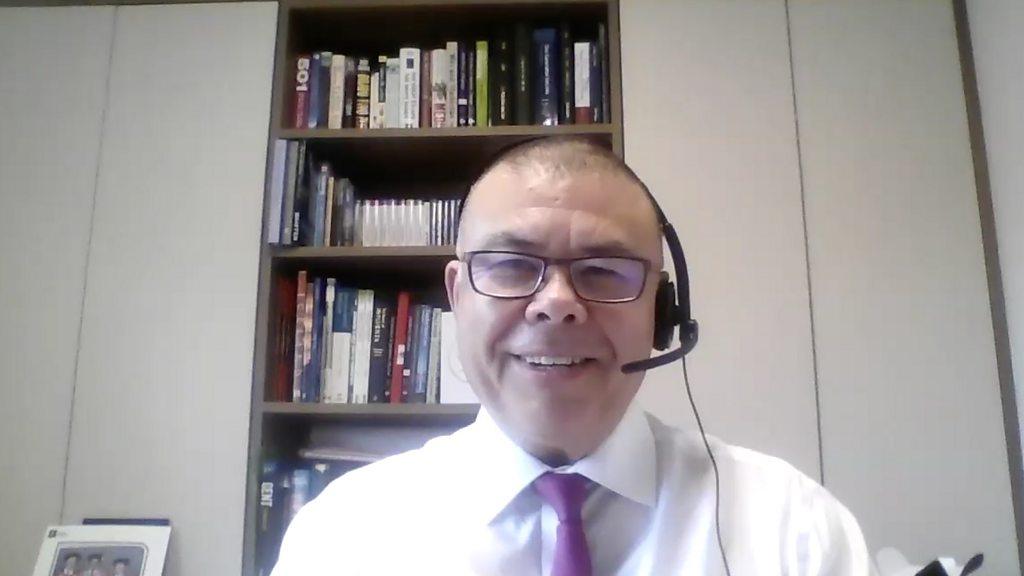
- Published18 January 2021
